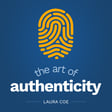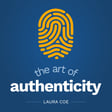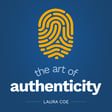
Dr. Margaret Paul, PhD: Empower Yourself To Heal Within
DR. MARGARET PAUL is a bestselling author, popular MindBodyGreen writer and co-creator of the powerful Inner Bonding® self-healing process, and the related SelfQuest® self-healing online program - recommended by author Marci Shimoff, actress Lindsay Wagner and singer Alanis Morissette. Margaret has worked with thousands of people to help them heal through her inner bonding system, and she has even appeared on Oprah. I have practiced the inner bonding system and found it to be a game-changer in my life. If you struggle with quieting those internal dialogs, repeating patterns that don't result in the life you wish for, or find you have a lot of anxieties or depression that therapy and other modalities haven't solved then check out this episode.


